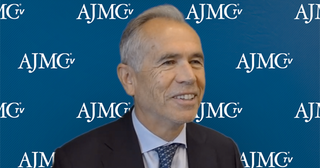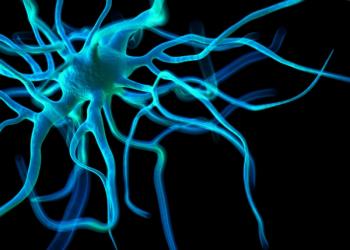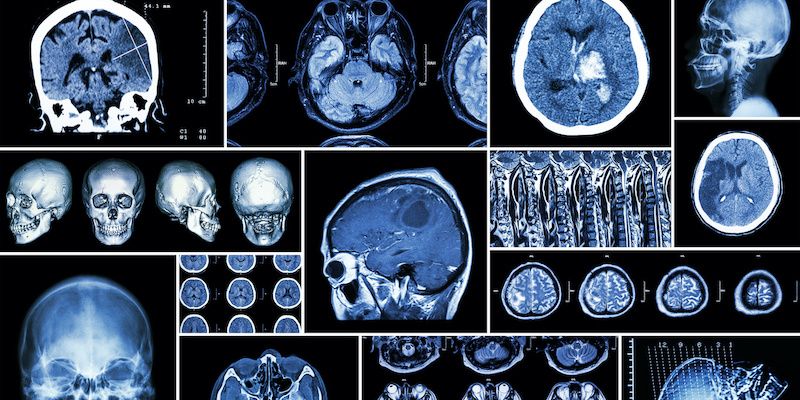
Multiple Sclerosis
Latest News
Latest Videos

CME Content
More News

Risk of infection topped the list of concerns among patients with multiple sclerosis (MS) who altered their usual care routines during the COVID-19 pandemic.

In an abstract presented at this year’s American Academy of Neurology annual meeting, patients with multiple sclerosis (MS) taking ocrelizumab had less of an immune reaction to infection with SARS-CoV-2, the virus that causes COVID-19.

Compared with disease-modifying therapy (DMT), age, insurance status, and Hispanic ethnicity were shown to more accurately predict likelihood of COVID-19 and hospitalization from it among individuals with multiple sclerosis (MS).

An online tool developed to facilitate efficient patient-provider decisions on disease modifying drugs for multiple sclerosis (MS) ran into several challenges and warrants further study.

A prospective bicentric cohort study among individuals with relapsing-remitting multiple sclerosis (RRMS) showed that 32% developed at least 1 skin-related adverse reaction following cladribine administration.

The advent of both new diagnostic criteria and treatments have necessitated a reevaluation of fatigue among individuals who have multiple sclerosis, investigators say.

Because health literacy can have different meanings for patients with different diseases, this review aimed to crystalize a definition in patients with multiple sclerosis (MS) and emphasize its importance in care planning.

Among patients with multiple sclerosis, there is a 16% greater risk of infection, including for lower respiratory and herpes virus infections, after administration of fingolimod.

With most current therapies for patients with multiple sclerosis (MS) targeting disease progression, a recent review evaluated transcranial direct current stimulation’s ability to improve certain disease symptoms.

Investigators aimed to close the knowledge gap on interindividual variability in cognitive evaluation outcomes by considering both cognitive impairment and mood disorders to better prediction accuracy.

With many patients with multiple sclerosis (MS) increasingly turning to herbal drugs and supplements to treat their disease, for which there is no cure, a recent review evaluated the safety of these alternative therapies.

Among these factors, having a higher degree of disability from multiple sclerosis (MS) was independently associated with higher morbidity and mortality risks from having a comorbid case of COVID-19.

Patients with multiple sclerosis have high rates of urinary and kidney infections, inpatient hospitalizations, and outpatient hospital claims, according to recent results presented at the Americas Committee for Treatment and Research in Multiple Sclerosis annual meeting.

Investigators sought to better understand increasing price trends, including those seen among disease-modifying drugs to treat multiple sclerosis (MS) and other neurological diseases.

Preliminary study results point to a possible connection between increasing global temperatures and an increased risk of hospitalization during the course of multiple sclerosis (MS).

A systematic review and meta-analysis of studies of patients with multiple sclerosis (MS) found that mindfulness- and acceptance-based interventions did not have a significant effect on mindfulness among these patients.

Compared with adult-onset multiple sclerosis (MS), pediatric-onset MS has few treatments directed at the condition, specifically those that promote remyelination, enhance neuroprotection, and remediate cognitive deficits.

Among 6 sphingosine-1-phosphate (S1P) receptor modulators evaluated for use in patients with multiple sclerosis (MS), a new meta-analysis shows amiselimod had the highest efficacy.

Advocates for patients with progressive multiple sclerosis (MS) want changes in study designs on emerging therapies to speed development and better align with the needs of researchers and patients.

The current guidance emphasizes that the mRNA-based Pfizer/BioNTech and Moderna vaccines are safe for people with multiple sclerosis (MS) taking disease modifying therapies (DMTs).

Timing of relapses in multiple sclerosis is one of several interactions among aging, the trajectory of progressive disease, and worsening disability, according to Burcu Zeydan, MD, assistant professor of neurology, assistant professor of radiology, at the Mayo Clinic.

Compared with patients with Parkinson disease, rheumatoid arthritis, or epilepsy, those with multiple sclerosis exhibited higher rates of medication adherence throughout the first year of treatment.

Investigators observed that some patients had improvements in their multiple sclerosis (MS) severity with increased sun exposure, whereas photosensitive individuals and those taking certain medications did not see the same effects.

Peer-led education was found to have a greater impact on multiple sclerosis (MS) health literacy than lecture-based education, a recent study from Iran demonstrated.

The findings suggest that this new categorization of cognitive deficits in multiple sclerosis may support clinicians in treatment choices and help tailor cognitive rehabilitation strategies, the authors said.














